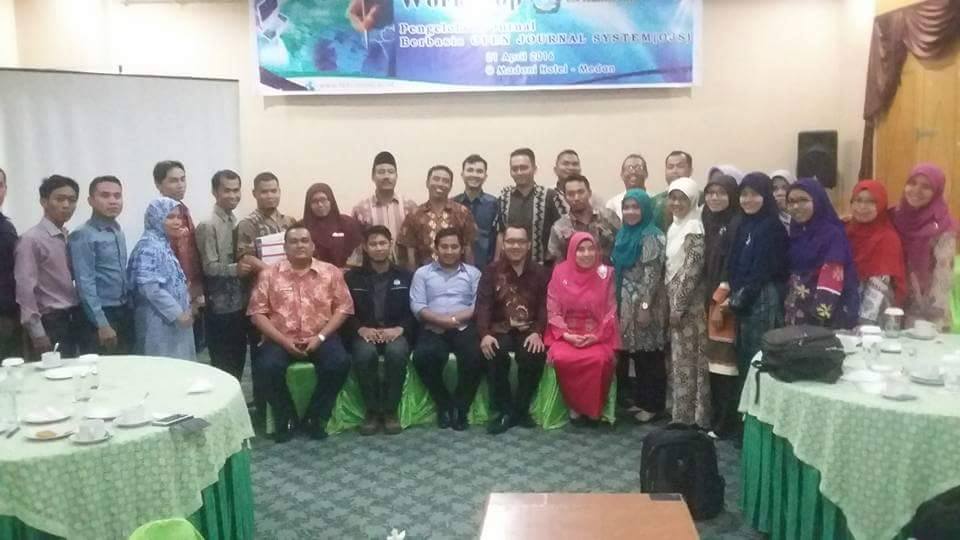STUDI LITERATUR ISLAMIC FINTECH
Abstract
This study aims to analyze the development of Islamic fintech and its role in Islamic finance from various literatures, especially journal articles of international repute and indexed by Scopus. This research is a type of qualitative-descriptive research with a literature study approach. The literature study was carried out by collecting journal articles that were in accordance with the research objectives using the Publish or Perish (PoP) application, then content analysis was carried out. Content analysis is an analytical method by trying to find out the content and intent of a text to produce an objective description. The results of the study show several findings, namely: first, the research topic is divided into three main topics, namely first, market analysis on what factors influence a customer to use or not use fintech, second, the impact of fintech on the economy, and third, fintech implementation. in various fields of the economy.
Keywords
Full Text:
PDFReferences
Abdullah, O. (2016). Impact of Fintech to Islamic Finance. Retrieved May 20, 2018, from www.islamicfinance.com/2016/04/impact-fintech-islamic- finance/
Ali, H., Zaini, M. Z., Hashmi, H. S., Abbas, M. H., Shahid, M. W., & Tariq, U. (2018). Awareness and Knowledge of Fintech among Islamic Banking and Finance Students in Pakistan. Islamic Banking and Finance Review, 5, 2–22.
Aslam, H. (2017). FinTech and the Future. Pakistan Today. Retrieved May 15, 2018, from www.pakistantoday.com.pk/2017/03/20/fintech-the-future/
Baber, H. (2020). Financial inclusion and FinTech: A comparative study of countries following Islamic finance and conventional finance. Qualitative Research in Financial Markets, 12(1), 24–42. https://doi.org/10.1108/QRFM-12-2018-0131
Darmansyah, Fianto, B. A., Hendratmi, A., & Aziz, P. F. (2020). Factors determining behavioral intentions to use Islamic financial technology: Three competing models. Journal of Islamic Marketing, 12(4), 794–812. https://doi.org/10.1108/JIMA-12-2019-0252
Hasan, M. (2018). Islamic Fintech in Simple Terms | Ethis Crowd Blog. [online] Ethis Crowd Blog. Retrieved July 10, 2019, from https://www.ethiscrowd. com/blog/understand-islamic-fintech-simple-terms/
Hasan, R., Hassan, M. K., & Aliyu, S. (2020). Fintech and Islamic Finance: Literature Review and Research Agenda. International Journal of Islamic Economics and Finance (IJIEF), 3(1), 75–94. https://doi.org/10.18196/ijief.2122
Hudaefi, F.A. (2020), "How does Islamic fintech promote the SDGs? Qualitative evidence from Indonesia", Qualitative Research in Financial Markets, Vol. 12 No. 4, pp. 353-366
Kaji, S. (2021). An Overview of Fintech on The Economics of Fintech. Editor: Kaji, Sahoko, Nakatsuma, Teruo, Fukuhara, Masahiro. Singapore: Springer Nature
Miskam, S., Yaacob, A. M., & Rosman, R. (2019). Fintech and Its Impact on Islamic Fund Management in Malaysia: A Legal Viewpoint. Emerging Issues in Islamic Finance Law and Practice in Malaysia, 223–246. https://doi.org/10.1108/978-1-78973-545-120191019
Moleong, L. J. (2017). Metodologi Penelitian Kualitatif. Bandung, PT Remaja Rosdakarya.
Narayan, S. W. (2019). Does Fintech Matter for Indonesia’s Economic Growth? Bulletin of Monetary Economics and Banking, 22(4), 437–456.
Nashori, F. (2008). Psikologi Sosial Islami. Jakarta, PT. Refika Aditama.
Ningrat, G., & Nurzaman, M. S. (2019). Developing Fintech and Islamic Finance Products in Agricultural Value Chain. Journal of Islamic Monetary Economics and Finance, 5(3), 491–516. https://doi.org/10.21098/jimf.v5i3.1077
Niswah, F. M., Mutmainah, L., & Legowati, D. A. (2019). Muslim Millennial’s Intention of Donating for Charity Using Fintech Platform. Journal of Islamic Monetary Economics and Finance, 5(3), 623–644.
Noor, A., Ahamat, H., Marzuki, I., Wulandari, D., Junaidi, A. A., Lisdiyono, E., & Trisnawati, B. (2021). Regulation and consumer protection of fintech in Indonesia. Linguistics and Culture Review, 6(August), 49–63. https://doi.org/10.21744/lingcure.v6ns3.1938
PwC. (2017). Customers in the Spotlight: How FinTech Is Reshaping Banking. [online] PwC. Retrieved June 29, 2019, from https://www.pwc.com/gx/en/ industries/financial-services/publications/fintech-is-reshaping-banking.html
Rabbani, M. R., Khan, S., & Thalassinos, E. I. (2020). FinTech, blockchain and Islamic finance: An extensive literature review. International Journal of Economics and Business Administration, 8(2), 65–86. https://doi.org/10.35808/ijeba/444
Rahim, F. A. (2016). Fintech Pitch for Islamic Bank: Three New Areas of Services. Master Thesis, INCEIF Malaysia, 1–7
Sa’ad, A. A., Ahmad, K., & Saleh, A. O. H. (2019). P2p islamic fintech investment innovation. A proposal of mushĀrakah smart contract model for smes financing and social development. Al-Shajarah, 2019(Special Issue IslamicBanking and Finance 2019), 169–184.
Shaikh, I. M., Qureshi, M. A., Noordin, K., Shaikh, J. M., Khan, A., & Shahbaz, M. S. (2020). Acceptance of Islamic financial technology (FinTech) banking services by Malaysian users: an extension of technology acceptance model. Foresight, 22(3), 367–383. https://doi.org/10.1108/FS-12-2019-0105
Usman, H., Mulia, D., Chairy, C., & Widowati, N. (2020). Integrating trust, religiosity and image into technology acceptance model: the case of the Islamic philanthropy in Indonesia. Journal of Islamic Marketing. https://doi.org/10.1108/JIMA-01-2020-0020
World Bank Group. (2020). Leveraging Islamic Fintech to Improve Financial Inclusion. Leveraging Islamic Fintech to Improve Financial Inclusion. https://doi.org/10.1596/34520
Zuchdi, D. (1993). Panduan Penelitian Analisis Konten. Yogjakarta : Lembaga Penelitian IKIP Yogyakarta
DOI: http://dx.doi.org/10.30829/hf.v10i1.10852
Refbacks
- There are currently no refbacks.
Indexed by:



_-_Copy3.png)














